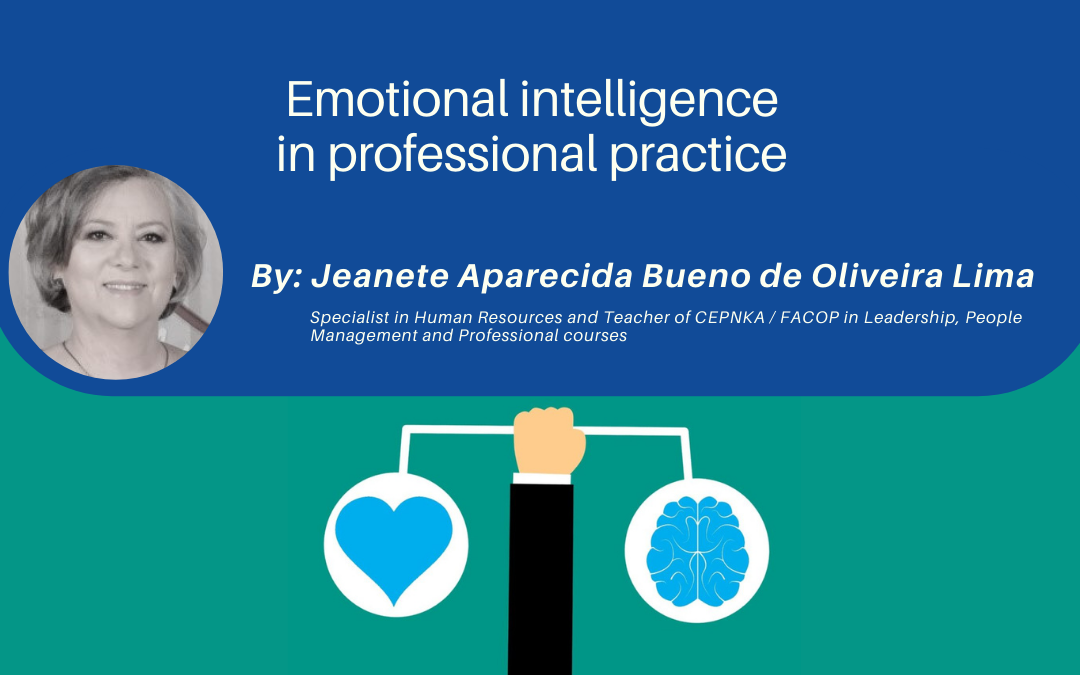No products in the cart.

Emotional intelligence in professional practice
Did you know that 9 out of 10 professionals are hired by their technical profile and dismissed by their behavioral profile?
Knowing how to control and deal with emotions is one of the most valuable professional characteristics for the market and, at the same time, one of the most complicated for the worker.
An individual’s ability to understand and cope with his or her own emotions and to learn to deal with those around him or her in order to achieve positive results in both personal and professional life is called Emotional Intelligence.
The importance of emotional intelligence is for life. Its essence is when we can reconcile the emotional and rational side of the brain, neutralizing the negative emotions that generate destructive behaviors, then empowering the positive emotions to achieve the desired results. It enables the construction of healthy relationships and conscious decision making, avoiding impulsive acts.
By working on emotional intelligence you:
- Decrease anxiety and stress levels;
- Improve interpersonal relationships;
- Develop more empathy;
- Acquire more emotional balance and clarity in goals and actions;
- Improve decision making, time management and productivity;
- Increase the level of commitment to your goals;
- Raise self-esteem and self-confidence.
Because of the many benefits that emotional intelligence can generate for your professional practice, we suggest some actions to start developing your own:
1 – Invest heavily in self-awareness
The first step is to know yourself, analyze your emotions and the actions you take in response to stimuli.
2 – Learn to control your emotions.
Learning to handle and control your emotions will move you in the right direction, depending on your situation, and make all the difference between balance and dysfunction.
3– Empathy
Learning to put oneself in another’s place, to recognize others’ emotions and understand their behaviors, makes us more sensitive and open.
4 – Know how to relate interpersonally
Another key to success is knowing how to have good relationships, guiding the emotions of others. This will create a positive environment around you, improving not only your quality of life but also affecting those around you.
5 – Work on your spirituality
You will find a way to be more compassionate and unafraid of being human.
6 – Practice physical exercise
The hormones released in physical activity balance the emotions.
7: Meditate
Being in the present moment does not feed you anxiety (focus on the future) nor develop depression (excess of the past).
Those who learn and apply emotional intelligence know how to think, feel and act intelligently and consciously, not allowing their emotions to guide their lives and hinder their work.
It’s always good to remember that emotional intelligence is something we spend a lifetime perfecting. It is a kind of maturity that never comes, for there are always ways to be better and to act in a more balanced and appropriate manner.

